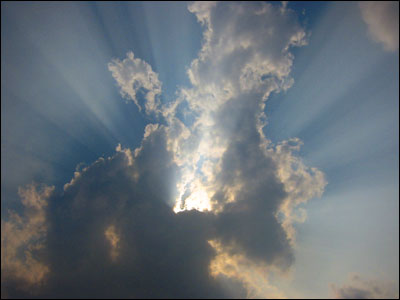 I've just been to see an Indian film, Rang De Basanti. (OWS)
I've just been to see an Indian film, Rang De Basanti. (OWS)
(Translates to "Paint it Orange", refers to the Colour of Patriotism - the Orange colour of the Triranga, India's national flag.)
The cinema experience was good. Well apart from the slight projection error just before the intermission.
This film has been out for ages, and so was no longer showing at the Odeon, so instead we went to a independent cinema in the "ghetto-ends" of Leicester.
It was great, because we were the only people in the room! Bet you've never had a cinema experience like that.
And the film.
Well, mixed messages. It was good. But I'd have written it better myself.
I didn't like the ending at all, and was quite surprised that the Indian Government allowed the production of such a film.
A film portraying the US Government like that would never be allowed to be made in Hollywood, let alone be shown the world over.
But I guess that shows the power that the Bollywood Film Industry has, and the true democracy of India.
One thing that made me laugh was the scene just after they had been to see a movie, where one of the guys says to Sue, the English girl,
"I love the songs and dance, do they have them in your movies?"
And another guy chips in,
"Thats why we grow trees in India, to dance round them".
It was good that the writers could laugh at themselves and the stereotypes of Bollywood movies.
It is true, some (not all!) Indian films are cringe-worthy with excess singing in fields, dancing around trees, and severe cheese, with about a hundred costume and scene changes that include the Pyramids of Giza, the Swiss Alps, and Big Ben, all in one song.
And I used to ridicule them, infact we all still do when conversation arises at family get-togethers.
But last year I watched this amazing reality-documentary-show on BBC 2 where Bristish people competed for a role in a Bollywood film.
In one episode, one of the contestants was talking to children in Bombay's slums, and found this orphan girl who was so poor and deprived of any education or upbringing that she didn't even know her own age.
Upon reflecting on her experiences, the contestant explained that most people in India are so poor and have to work so hard to make a living, that watching a 3 hour cheese-fest film where good always overcomes evil and the hero always gets the heroine, provides them with an escape from the hardships of everyday life.
And plus, sometimes its fun to sit back and soak up the cheese and have a laugh.
But back to Rang De Basanti...
India is angry.
Not its government, its people. They are angry at the corruption in the current political system, and at the years of abuse and silenced voices that their Motherland suffered under the British Raj.
And film makers like Amir Khan are using the largest media outlet they have, to awaken their generation and express their opinions - Bollywood - the biggest film industry in the world.
It started with (the Cannes film festival nominated) Lagaan, and since have followed The Rising, and Page 3 to name but a few.
There was also a really sad moment, I dont want to give away the whole plot, but it included the rather predictable death of a son.
The funeral scenes are portrayed with a beautiful song. I've heard this song before on the radio, but as its all in Hindi didn't understand it. It was only when it was put to the story of the film with subtitles that my eyes began to water. Something along the lines of a mother singing,
"This game of hide and seek has to end, my eyes have grown weary looking for you son",
and the son replying (singing about being in Heaven),
"Don't worry about me Mother, im in the most amazing place, where the waterfalls are of rainbows, the only thing is that you are not here with me."
The film overall was inspiring, and I hope it gives the young generation of India the right messages, that you can change things by first changing yourself.
"In India today, we have a lady born a Catholic (Sonia Gandhi) stepping aside so a Sikh (Manmohan Singh) could be sworn in by a Muslim president (Abdul Kalam) to lead a nation that's 82% Hindu.
I defy anyone to cite another country with such diversity and tolerance to its political leadership."















